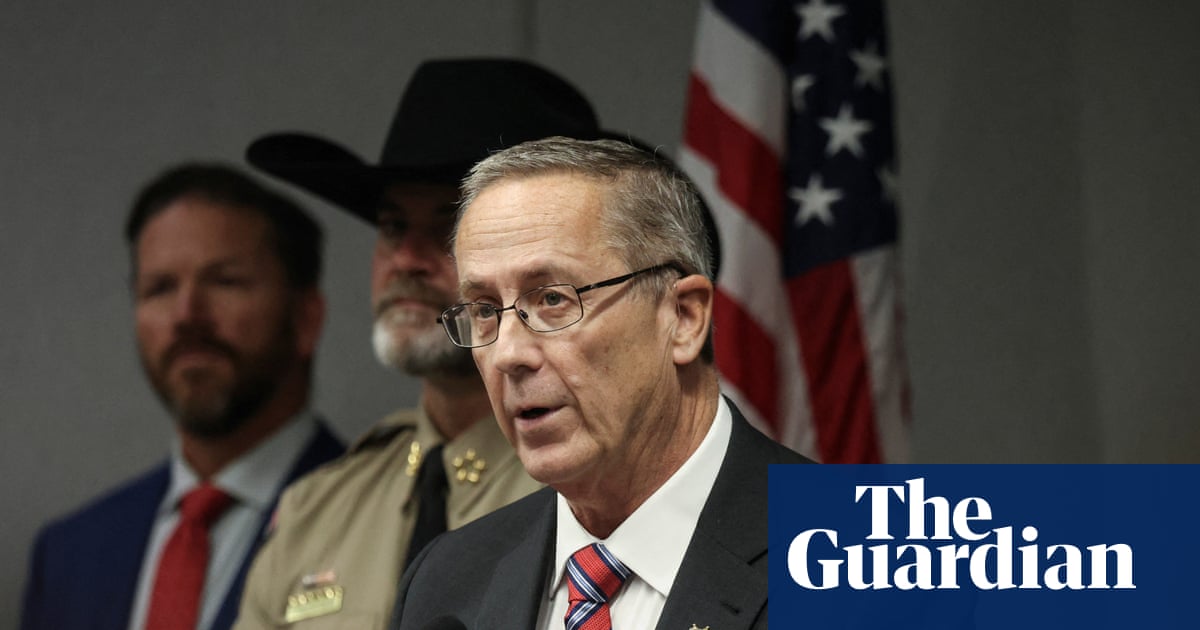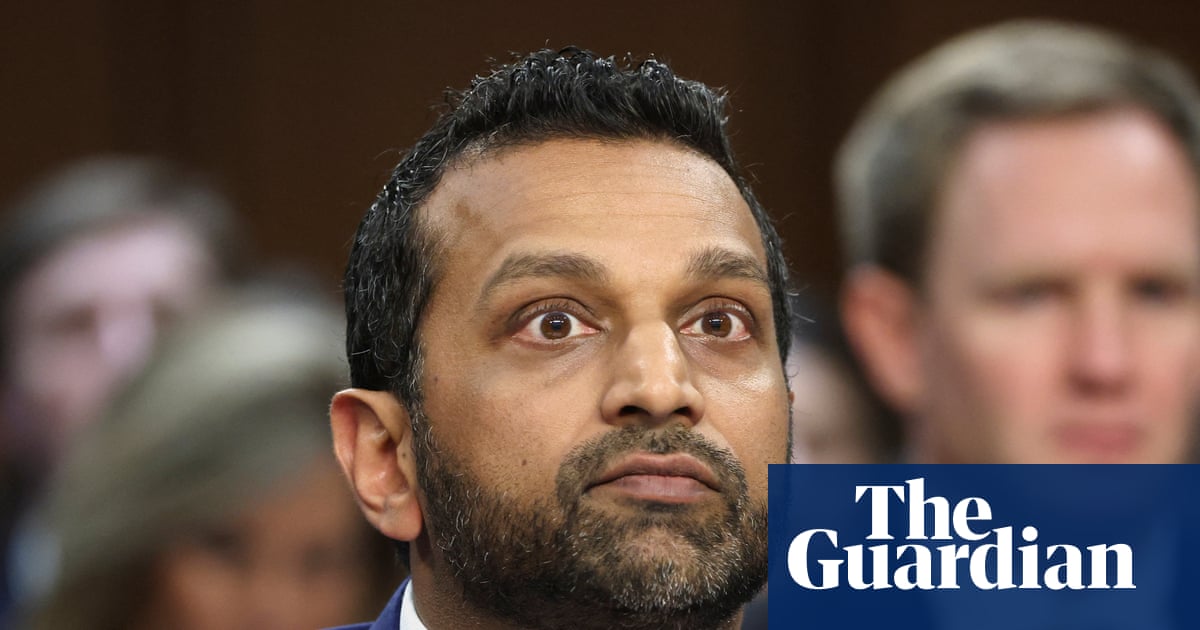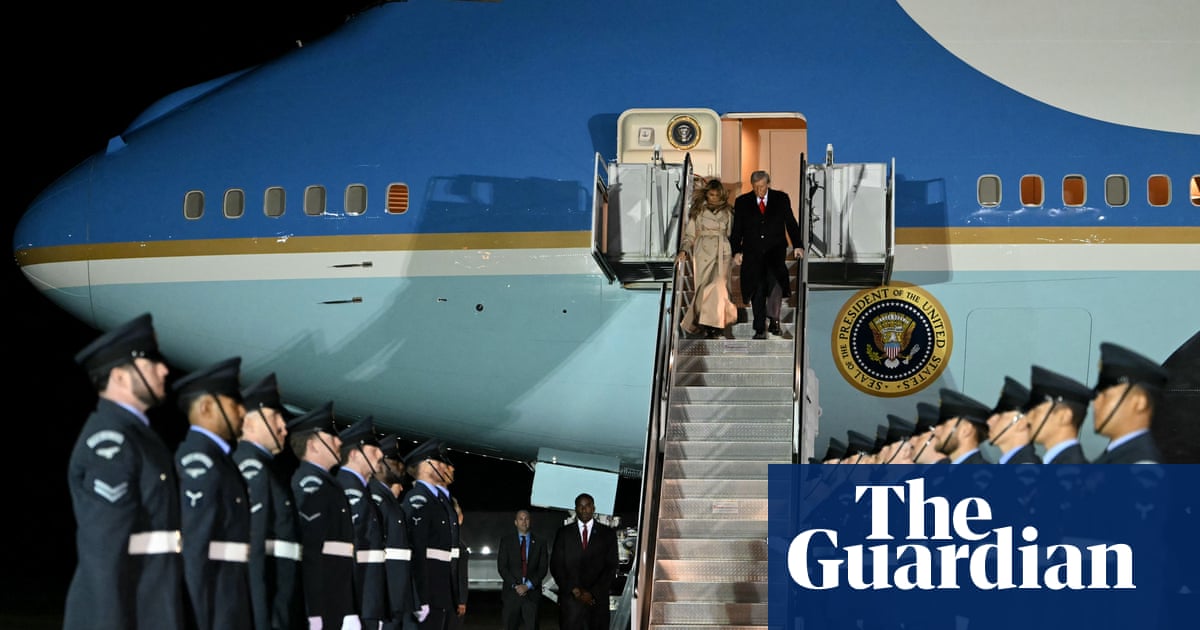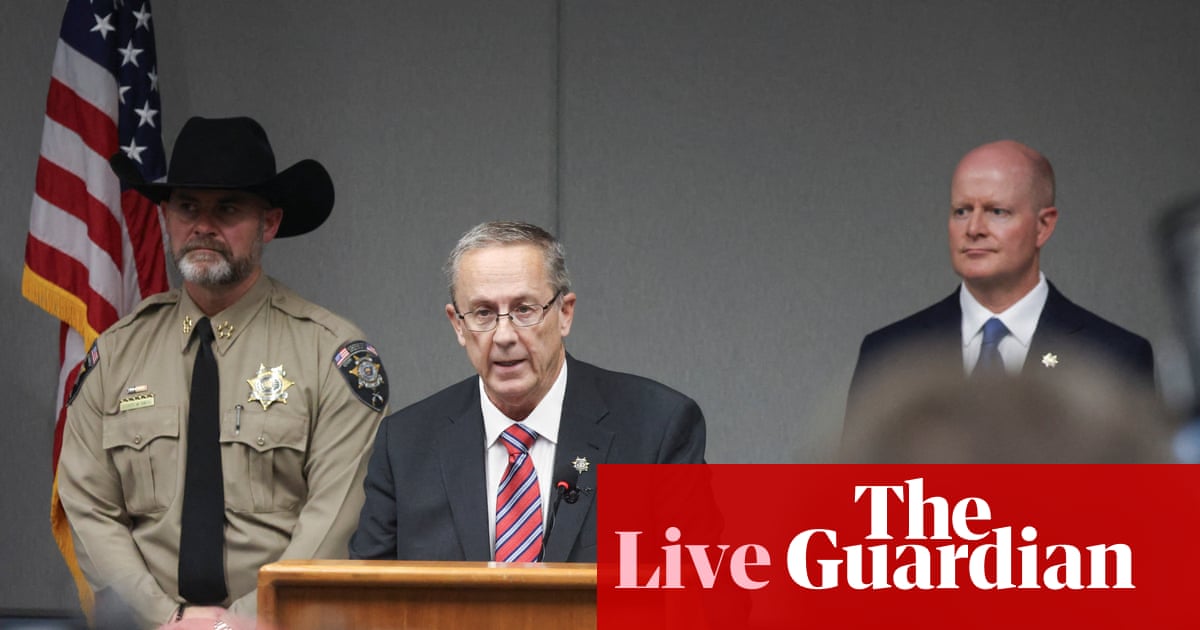In mortarboards and crimson-fringed gowns, thousands of students were joined by smiling families for the centuries-old ritual of graduation day. But this year was different.
Alan Garber, the president of Harvard University, received a standing ovation and welcomed graduates “from down the street, across the country and around the world”, drawing applause for the last words: “Around the world – just as it should be.”
It was a nod, subtle but firm, to the international students who are part of the lifeblood of Harvard but now a target for Donald Trump: his administration is seeking to revoke Harvard’s ability to enroll students from overseas. It is just one front in an escalating battle between a US president with authoritarian ambitions and the county’s oldest, wealthiest and most prestigious university.
Since taking office more than four months ago, Trump has used executive power to take aim at Congress, law firms, media organisations, cultural institutions and leading universities. Some have resisted but many have capitulated. In Harvard, the man who urged his supporters to “fight, fight, fight” faces a resilient foe unlike any he has taken on before.
Its emergence as a bulwark of the opposition to Trump was summed up by this year’s Class Day speaker at Harvard, the former basketball star Kareem Abdul-Jabbar: “After seeing so many cowering billionaires, media moguls, law firms, politicians and other universities bend their knee to an administration that is systematically strip-mining the US constitution, it is inspiring to me to see Harvard University take a stand for freedom.”
Harvard was founded in Cambridge, Massachusetts, in 1636, a century-and-a-half before the nation itself. Its alumni include former presidents John F Kennedy and Barack Obama, supreme court justices Ruth Bader Ginsburg and Elena Kagan, tech entrepreneurs Bill Gates and Mark Zuckerberg, actors Matt Damon and Natalie Portman and writer Margaret Atwood.
Now it is in Trump’s crosshairs. The administration claims its actions are aimed at tackling issues such as antisemitism on campus, discrimination – particularly against white, Asian, male and straight individuals - foreign influence from China, and perceived “woke” or “leftist” ideology in academia.
The administration launched its offensive in April, sending a letter to Harvard demanding that it make far-reaching changes in how it operates. The list included external audits of campus viewpoints, achieving “viewpoint diversity” as determined by the government and potentially terminating certain programmes.
Garber publicly rejected the demands, stating they amounted to ceding control of the university to the government and were an unconstitutional attack on academic freedom.
Within hours, the Trump administration announced it was freezing more than $2bn in federal contracts and grants with Harvard, which mostly fund scientific and medical research. This has since risen to a total of $3bn. Harvard is fighting the funding cuts in court.
In May, Trump turned the screws further. He said he is considering taking previously awarded grant money for scientific and engineering research away and giving it to trade schools. The White House urged federal agencies to cancel any remaining contracts with Harvard, worth an estimated $100m.
The administration also announced that it would revoke Harvard’s ability to enroll international students and force current foreign students to transfer to other schools or lose their legal immigration status. In a chilling statement, Kristi Noem, the homeland security secretary, said: “Let this serve as a warning to all universities and academic institutions across the country.”
More than a quarter of Harvard’s students come from outside the US and serve as a vital revenue source at the Ivy League school. Critics warned that Trump’s actions would represent a spectacular own goal, driving the world’s best talents away from the US and into the arms of its competitors.
Michael McFaul, a former US ambassador to Russia, wrote on Substack: “Had Trump’s anti-foreign student policies been in place decades ago, Oxford grad Elon Musk would have built Tesla in the United Kingdom, Tsinghua University alum Jensen Huang would have built Nvidia in the People’s Republic of China or Taiwan, and Moscow State University grad Sergei Brin would have built Google in Russia.”
Harvard sued the administration and won an emergency block on the action. This week, a judge said she would extend the order as the two sides continue to thrash it out in court.
Trump is also using the tax system as a cudgel. Most universities, including Harvard, are exempt from federal income tax because they are deemed to be charitable organisations operated exclusively for public educational purposes. The administration is now threatening Harvard’s tax-exempt status, which experts say saves the school hundreds of millions of dollars each year.
Trump’s massive spending bill before Congress would drastically hike taxes that Harvard and other elite schools pay on the profits their massive endowment investments make. Critics say that would weaken the ability of Harvard and other rich schools to provide generous financial aid packages to poorer students.
What are the White House’s motives? Some observers detect the hand of JD Vance and the deputy chief of staff, Stephen Miller. In 2022, Vance told Vanity Fair magazine: “I tend to think that we should seize the institutions of the left and turn them against the left. We need like a de-Baathification programme, a de-woke-ification programme.”
And on Thursday, Miller told Fox News: “Harvard has engaged in decades of invidious, unlawful and illegal race-based discrimination against American citizens ... The Democrat party’s philosophy right now is for foreigners, everything – for Americans, nothing.”
Jason Johnson, a political scientist at Morgan State University in Baltimore, Maryland, said: “Their goal is to intimidate and break down institutions of higher learning in America because that is where most of the resistance to their authoritarian tendencies is going to come from.
“They figure, if we can bankrupt Harvard, if we can embarrass Harvard, if we can put Harvard in a position of weakness or at least get them to bend the knee, then all the other institutions in America will follow. That’s why they’re doing this.”
Johnson warned: “Trump is not going to meet his match because he has the entire resources of the federal government at his disposal. Regardless of what Harvard does, there will be other universities who simply see the attack and comply in advance, and that ultimately would still be a victory for the Trump administration.”
Other commentators detect an element of class warfare. Trump won election last November with a base drawing largely on non-college-educated white men. Now he is stoking hostility towards the ivory towers of the US’s most elite university.
Brendan Boyle, a Democratic representative who graduated from Harvard in 2005, said: “Part of Trump’s political skill is figuring out how to portray himself as this working man’s populist hero even though he’s a billionaire who pisses in gold toilets.
“Beating up on Harvard will probably help him among some in his base, but I do think most Americans recognize this for what it is: an attempted government takeover of higher education. That’s something that should actually worry all of us.”
The onslaught against Harvard is typical of an administration that, in its opening weeks, sought to overwhelm opponents with shock and awe. Columbia University made sweeping concessions, hoping to claw back $400m of withdrawn federal grants.
But Harvard’s substantial $53bn endowment provides it with greater capacity to withstand pressure and engage in legal battles compared with less well-endowed institutions. It has refused to buckle to Trump’s demands. Instead, it has challenged the administration’s actions in court and achieved some temporary victories.
Boyle, who spoke with Harvard’s Garber recently, said: “I personally expressed to him how proud I am to see Harvard standing up and not backing down from this fight the way, unfortunately, some other universities had backed down. In standing up to this administration, Harvard is waging a battle not just for the future of Harvard but for the future of American higher education.”
Asked whether he is confident that Harvard will win, Boyle replied: “Harvard has been around for hundreds of years before Donald Trump and it will be around for hundreds of years after Donald Trump.”
Trump has long styled himself as a fighter. He waged legal battles during his business career. He has feuded with celebrities ranging from Rosie O’Donnell to Taylor Swift to Bruce Springsteen. He has railed against media outlets such as CNN and the New York Times. In the political arena, he took on the entire Republican party establishment and won. He also waged bitter campaigns against Democrats such as Hillary Clinton, Joe Biden and Kamala Harris.
But both Trump’s first and second presidential terms have run afoul of a robust judiciary finding many of his actions unconstitutional. This week, a federal court blocked him from imposing sweeping tariffs on imports under an emergency-powers law. He won a temporary reprieve from an appeals court a day later but his signature set of economic policies remains in doubt.
Academics at Harvard trust that the rule of law will prevail in their own case. Laurence Tribe, a professor of constitutional law emeritus, said: “I think we’re going to win the battle in the courts. These are open-and-shut cases.
“In fact, in the federal courts in the month of May, there were a lot of battles involving Trump against various individuals and institutions, and you know what his record was? He lost 96% of them. The percentage that he lost was not very different depending on which president appointed the judge, because these are easy legal questions.”
Holding firm is crucial, Tribe believes, because Trump is trying to pick off universities one by one, just as he did with law firms. At stake is a stand against authoritarianism and the hope that courage will be contagious.
“If they can’t control the university, they want to disband it because the first thought of a tyrant is to suppress the power of reason and the citadel of freedom,” Tribe said. “That is the university. It’s been true since the Middle Ages. Harvard has an emblematic significance that makes it stick in Donald Trump’s craw. Its motto ‘veritas’ must irritate the hell out of him because truth is his enemy.”

 3 months ago
157
3 months ago
157

















































